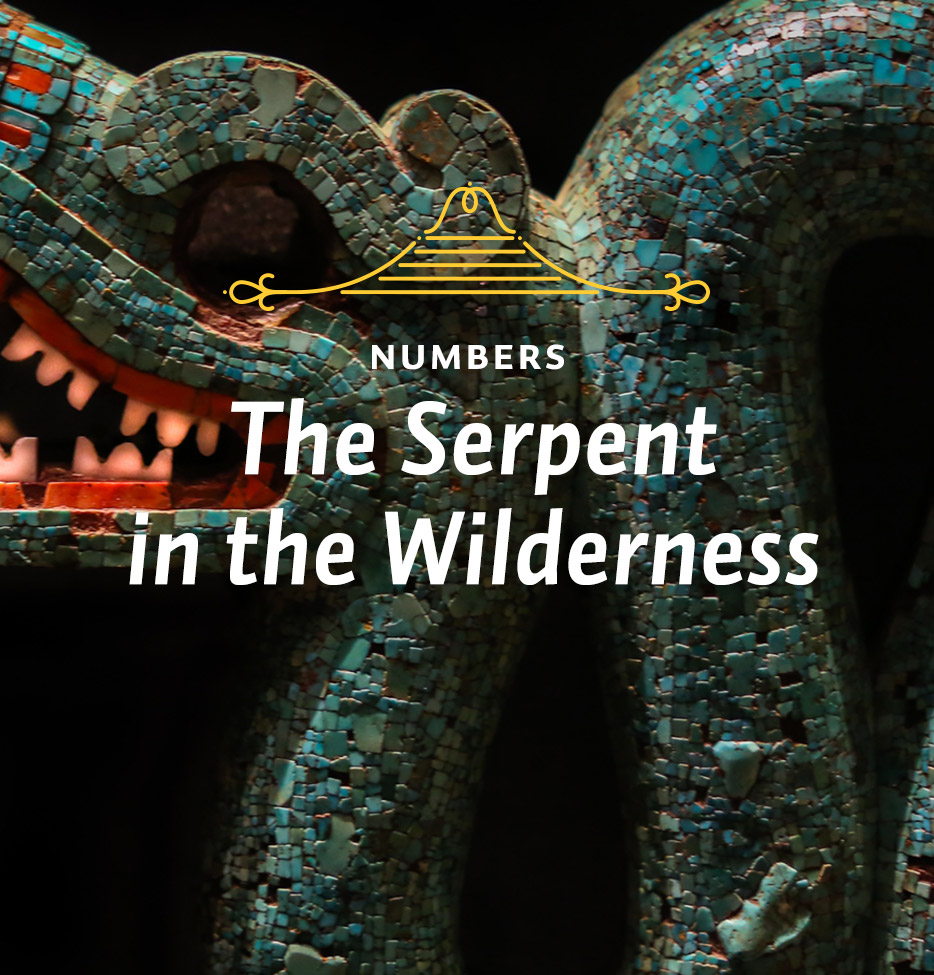The last point is that relics are useless. People weren’t commanded to buy some relic of the serpent or possess some fragment of the pole upon which the snake had been erected. One of the most bizarre ideas that’s ever entered the history of the Christian Church is that people get saved by relics. In the Middle Ages it was a big business to sell relics of the cross and other things that were associated with Christ. But the Israelites were to believe that God was going to save them if they would look to the snake, as God commanded. And when they did it they were saved.
In Charles Haddon Spurgeon’s book All of Grace, he writes that faith is “the eye which looks,” “the hand which grasps,” and “the mouth which feeds upon Christ.”1 It’s really as simple as that.
It’s very important to realize what faith is so that people do not make the mistake of believing they’re saved when they are really not. When the classical theologians used to talk about faith, they always said that faith had three elements: content, assent, and trust. Faith is based upon the promise of God, which is why we teach and preach the Gospel so people will learn of it. And once people understand the content of faith, there must be assent, or agreement, that the content is true. Then, lastly, there must follow a commitment to Jesus Christ.
John Calvin may have been the strongest of all the Reformation writers on this first point of the need for content, because he found it necessary to oppose a very pernicious error that had entered into the Church in the Middle Ages. The church had become derelict in teaching doctrine to the people. It should have been founding schools to teach people to read the Bible and understand it. But the Church hadn’t been doing that. It had been retreating into traditions and a sort of showmanship that dazzled but didn’t engage the mind. As a result, the question arose: How are people to be saved if they really don’t know the basic teachings of the Bible?
The answer the Church had given to that question before Calvin was that people are saved by implicit faith. This meant that they had to have implicit trust in what the Church knew about the Christian faith. If they trusted what the Church knew, they didn’t actually have to know much or anything about Christian doctrine. They just had to believe and do what the Church told them.
Calvin said that this wasn’t good enough. He said, “Faith rests upon knowledge, not upon pious ignorance.” He continued,
We do not obtain salvation either because we are prepared to embrace as true whatever the church has prescribed, or because we turn over to it the task of inquiring and knowing. But we do so when we know that God is our merciful Father, because of reconciliation effected through Christ…and that Christ has been given to us as righteousness, sanctification, and life. By this knowledge, I say, not by submission of our feeling, do we obtain entry into the Kingdom of Heaven.2
This lack of knowledge of biblical content was an enormous problem in the Middle Ages, and it is still so with us.
Some time ago I heard a story of a man who was being received into church membership. The elders were examining him and asked, “What do you believe?”
The man answered, “I believe what the church believes.”
The elders weren’t quite satisfied with that, so they pressed him: “Well, what does the church believe?”
The man said, “The church believes what I believe.”
Still not being satisfied, the elders pressed him further: “Well just what do you and the church believe?”
The man was resourceful and he responded, “We believe the same thing.”
This is why Calvin insisted that we teach content.
The second element is assent. It is possible to know the content of Christian theology and not agree with it. When I was studying English literature in college, my professors knew theology very well because English literature is filled with Christian doctrine. But they didn’t believe it. Saving faith not only requires knowledge of the Bible’s content, but also agreement that it is true.
I like the picturesque way Calvin puts it: “It now remains to pour into the heart itself what the mind has absorbed. For the Word of God is not received by faith if it flits about in the top of the brain, but when it takes root in the depth of the heart that it may be an invincible defense to withstand and drive off all the stratagems of temptation.”3 In other words, although you can understand the basic doctrines of Christianity perfectly well, you will perish unless you also, by the grace of God, come to agree that Christianity really does describe your need and God’s way of salvation through the work of Jesus.
1Charles Spurgeon, All of Grace: An Earnest Word with Those Who Are Seeking Salvation (1886; repr. Apollo, PA: Ichthus Publications, 2014), 37.
2John Calvin, Institutes of the Christian Religion, ed. John T. McNeill, trans. Ford Lewis Battles (Philadelphia, PA: Westminster, 1960), 3.2.2.
3Ibid., 3.2.36.






